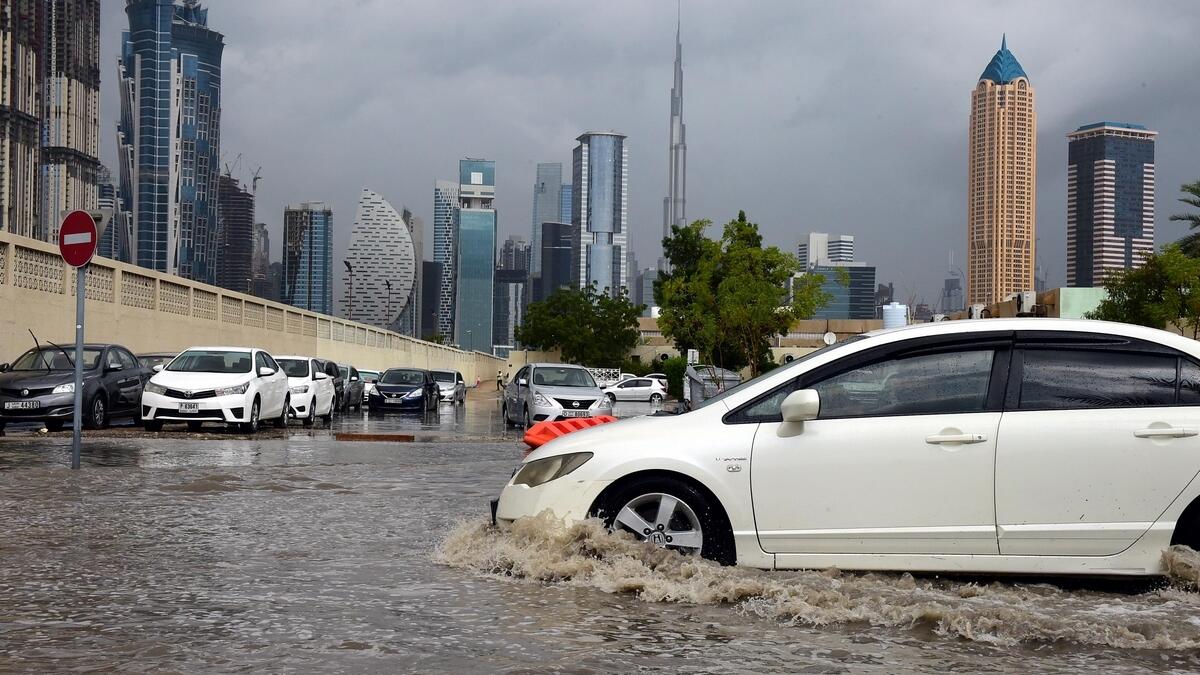Image used for illustrative purpose. Photo: File
Insurance companies in the UAE have increased premiums by up to 30 per cent after the unprecedented heavy rains recorded in mid-April.
Insurance industry executives say that demand and premiums for comprehensive insurance have also grown with some of them reporting a 100 per cent jump in the post-rain period as third-party liability (TPL) doesn’t cover natural disaster damages to vehicles and homes, pressing owners to opt for costlier packages.
The UAE recorded the heaviest rain on April 16 in 75 years, resulting in flooding in many parts of the country, especially Dubai, Sharjah and Ajman. Insurance companies have been flooded with vehicle and house claims against damages incurred during the rain with some of the firms reporting up to a 400 per cent jump in claims.
Stay up to date with the latest news. Follow KT on WhatsApp Channels.
The UAE is expected to record medium to heavy rains for two days again this week, starting from Wednesday evening.
Toshita Chauhan, business head of health and motor insurance at policybazaar.ae, said they have “noticed an increase ranging from 5 to 20 per cent” in insurance rates after the heavy rains.
She said the claims are higher as compared to the previous weeks by close to over 200 per cent.
Chauhan added that saloons and sports/coupe cars particularly will see a higher impact of the premium hikes as they seem to be the worst impacted in the latest rains.
Moin ur Rehman, executive director of Unitrust Insurance Broker, also confirmed that “some insurance companies in the UAE have indeed raised rates following the unprecedented rains. The extent and specifics of these rate increases can vary depending on the insurer and the type of coverage.”
He said the most affected segments by rate increases tend to be motor and property insurance, particularly for homes and businesses located in flood-prone areas.
“Premiums for these segments have seen noticeable hikes, with some reports suggesting increases ranging from 10 to 30 per cent.”
Meanwhile, Avinash Babur, founder and CEO of Insurancemarket.ae, said there was no premium increase but firms may consider it later.
He added that the industry is still assessing the full impact of the recent torrential rains and the focus currently is on evaluating the claims received due to the flooding and ensuring prompt support for those affected.
“As of now, insurers have maintained their premium rates post the rainfall. However, given the extensive claims expected and the overall burden on the industry, there might be considerations for future adjustments in premiums, but any such changes would be carefully evaluated and implemented to maintain fairness and affordability,” he said.
Faisal Abbas, vice president for employment benefits and general insurance at the Continental Group, also expects an increase in premiums in the third quarter or by the fourth quarter of this year.
Comprehensive insurance demand doubles
Abbas revealed that the demand for comprehensive motor insurance has almost doubled since the flooding incident. “A similar surge in demand is evident in the home insurance category as well.”
Avinash Babur stated that the demand for comprehensive insurance policies has seen an uptick as individuals seek to secure broader coverage in the wake of the heavy rains. “It’s a natural response to increased awareness of potential risks, though the surge isn’t overwhelming as people are still in the process of understanding the full scope of necessary coverage.”
Moin Ur Rehman also observed an increase in demand for comprehensive insurance coverage for both property and vehicles.
Toshita Chauhan also saw that premiums for comprehensive insurance packages for vehicles have gone up.
“We have seen an increased demand for comprehensive insurance cover especially for cars older than 8 years which would typically buy third-party liability cover. We are seeing an upward trend of customers who are currently insured on the third party, now buying comprehensive plans at the time of renewal. This number is hovering over 95 per cent,” she said.
Read the full article here

















































